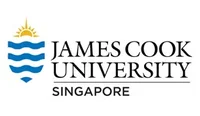Singapore is a great place to live and learn. They have some of the top universities in all of Asia, and they are highly respected throughout the world. Graduating here will set you up for a future career in the field of your choice, and you will be well positioned for successful entry into the job market immediately upon graduation.
Eligibility Requirements
Studying in Singapore is meant to be accessible to anyone who demonstrates the desire and passion to learn. That being said, you also need to show that you can handle the academic rigor associated with university coursework. You can show this by completing a minimum of two A-Level courses during secondary school. These courses need to each have a general paper requirement, and they need to be completed in one sitting. Aside from that, universities in Singapore also hold those with an International Baccalaureate Diploma in high regard. If neither of these are really options for you, then consider taking the SAT or ACT exam. Score as high as possible, as this will be an important factor in how favorably your overall application is viewed.
Aside from the academic requirements, you will also need to show a certain level of proficiency in the English language as an international student. This will be measured via an exam that is administered during your first year of study. If you do not quite score high enough on that, then you may be asked to sit for up to three more modules to designed to improve your English language skills. Keep in mind that those modules will not be counted as credit in your degree program.
Cost of Studying Hotel Management and Hospitality in Singapore
Singaporean universities will want you to demonstrate that you have the financial means to comfortably live and study in Singapore. For those that have a grant from the Ministry of Education, the annual tuition fee for this program is currently $17,100 Singapore Dollars. If you do not have a grant, you will be expected to pay about $29,350 Singapore Dollar in annual tuition fees. Remember to also take into account your lodging costs, food, travel expenses, and any additional course fees that you might incur.
 +60142521561
+60142521561











